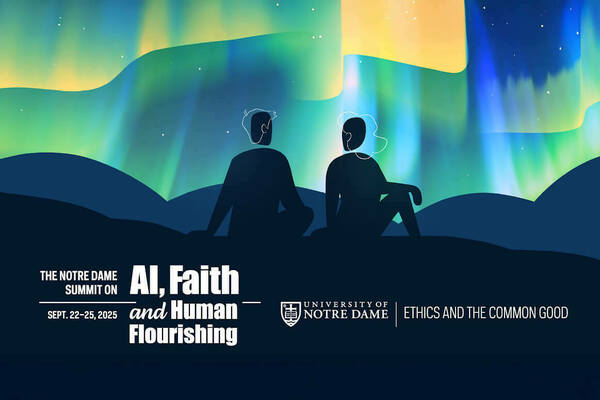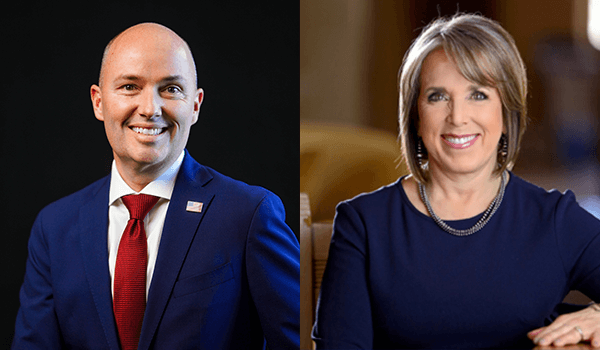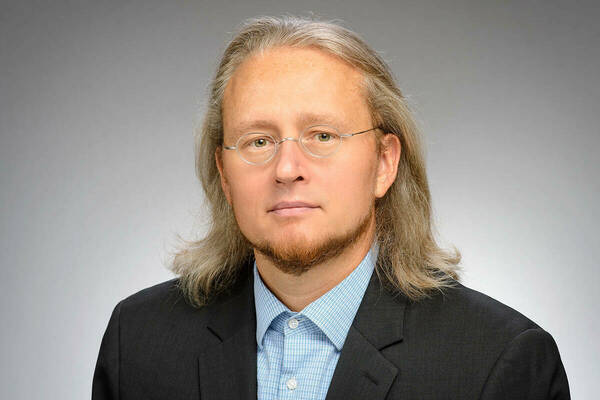Record-tying four Notre Dame students named 2025 Goldwater Scholars

A record-tying four University of Notre Dame students have been named 2025 Goldwater Scholars in recognition of their exceptional promise as future leaders in the natural sciences, engineering and mathematics.
Juniors Jacob Finley, John Howe, Thomas Reimer and Connor Smith each will receive a maximum $7,500 for tuition and other expenses for the upcoming 2025-26 academic year.

Jacob Finley
Finley, from Kentucky, is an honors track physics-in-medicine major in the College of Science. He is a research assistant to Sylwia Ptasinska, professor of physics and astronomy, in the Ptasinska Research Laboratory. He previously worked under Steven Lin, associate professor of biomedical sciences, at MD Anderson Cancer Center. He will pursue research this summer as an Amgen Scholar at UT Southwestern Medical Center. Outside of the classroom, he is a hospice volunteer. He also volunteers at a local hospital. After graduation, he plans to pursue a doctorate in physics and then work as a radiation oncology physician scientist.

John Howe
Howe, from Texas, is an electrical engineering major in the College of Engineering. A two-time NDnano Undergraduate Research Fellow, he is an assistant to Kai Ni, assistant professor of electrical engineering, in the Nanoelectronic Devices and Systems Group. He previously worked under Svetlana Neretina, professor of aerospace and mechanical engineering, in the Nanomaterial Fabrication Research Laboratory. Outside of the classroom, he is a member of the Notre Dame Marching Band and the Robotic Football Club. He plans to pursue a doctorate in electrical engineering after graduation and then work as a researcher for the semiconductor industry, with a focus on memory technologies.

Thomas Reimer
Reimer, from Maryland, is an honors track chemistry major in the College of Science. He is a research assistant to Brandon Ashfeld, professor of chemistry and biochemistry, in the Ashfeld Research Group. He previously worked under Kaiya Fu, assistant professor of chemistry and biochemistry, in the Fu Lab. A past recipient of a summer research abroad grant from the National Science Foundation and a Summer Language Abroad Grant from the Center for the Study of Languages and Cultures, he plans to pursue a doctorate in chemistry after graduation and then pursue solutions to unsolved or overlooked biological problems in the medical context as an organic chemist.

Connor Smith
Smith, from Texas, is a Glynn Family Honors Scholar and an honors track physics major in the College of Science. He is a research assistant to Justin Crepp, associate professor of physics and astronomy and director of the Engineering and Design Core Facility. He conducted research on gravitational waves with Quynh Lan Nguyen, affiliate scholar of physics and astronomy, and was a recipient of the Quazi and Shaheen Islam Summer Undergraduate Research Fellowship in Physics and Astronomy from the College of Science. Outside of the classroom, he is a bilingual tutor with La Casa de Amistad. He also co-hosts a weekly radio program on campus. He plans to pursue a doctorate in astrophysics after graduation and then conduct astrophysical research at an observatory or national laboratory or research and teach at the university level.
In applying for the scholarship, the students worked closely with the Flatley Center for Undergraduate Scholarly Engagement (CUSE), which supports the intellectual development of Notre Dame students via scholarly engagement, research, creative endeavors and the pursuit of fellowships.
Emily Hunt is assistant director of scholarly development for CUSE.
“Our success with the Goldwater Scholarship points directly to the transformative research opportunities available to Notre Dame students in the Colleges of Engineering and Science,” Hunt said. “Each one of our recipients has received guidance from dedicated faculty mentors both on campus and off. Thank you to those mentors, CUSE postdoctoral fellow Grace Song and our dedicated faculty nomination committee for supporting our applicants.”
Named for former U.S. Sen. Barry Goldwater, the Goldwater Scholarship seeks to foster and encourage outstanding sophomores and juniors to pursue research careers in the natural sciences, engineering and mathematics. It is the preeminent undergraduate award of its type in these particular fields.
For more on this and other scholarship opportunities, visit cuse.nd.edu.
Latest ND NewsWire
- Banks that identify fraudsters increase loyalty, retain more defrauded customers than others who never were compromisedIn a new research study, Vamsi Kanuri, the Viola D. Hank Associate Professor of Marketing at the University of Notre Dame’s Mendoza College of Business, found that banks that identify fraudsters earn customer loyalty and lose customers if they can’t say who was responsible for a fraudulent transaction.
- Notre Dame to host summit on AI, faith and human flourishing, introducing new DELTA frameworkThe Institute for Ethics and the Common Good and the Notre Dame Ethics Initiative will host the Notre Dame Summit on AI, Faith and Human Flourishing on the University’s campus from Monday, Sept. 22 through Thursday, Sept. 25. This event will draw together a dynamic, ecumenical group of educators, faith leaders, technologists, journalists, policymakers and young people who believe in the enduring relevance of Christian ethical thought in a world of powerful AI.
- Notre Dame Democracy Initiative hosts bipartisan conversation with Western state governorsTwo Western state governors known to work across the aisle on policy issues such as water, housing and energy will visit the University of Notre Dame for a fireside chat about how Western state pragmatism can serve as a model for the country to overcome polarization.
- In new research, Roy Scranton explores climate change and the limits of human progressIn his most recent book, “Impasse: Climate Change and the Limits of Progress,” Scranton, an associate professor of English, defines the impasse he sees as “not only political and institutional, but cognitive, existential and narrative” and asserts that the only path forward is through embracing what he terms ethical pessimism. “A lot of people confuse pessimism with nihilism, apathy and despair,” Scranton said. “But pessimism is actually about recognizing our limits, letting go of unrealistic goals, finding solidarity in the fact of human suffering and doing what you can now, not in some utopian future.
- Notre Dame MBA launches deferred admission programThe Notre Dame MBA Deferred Admission Program allows candidates with little or no work experience, including college seniors, to secure admission before reaching the recommended three years of work experience to enroll.
- ‘Prebunking’ false election claims may boost trust in electionsIn recent years, democracies worldwide have seen a growing erosion of trust in election outcomes and institutions, driven in part by fears of widespread fraud. New Notre Dame research finds that “prebunking” — providing accurate information before false claims spread — boosts trust in elections more effectively than traditional fact-checking.













